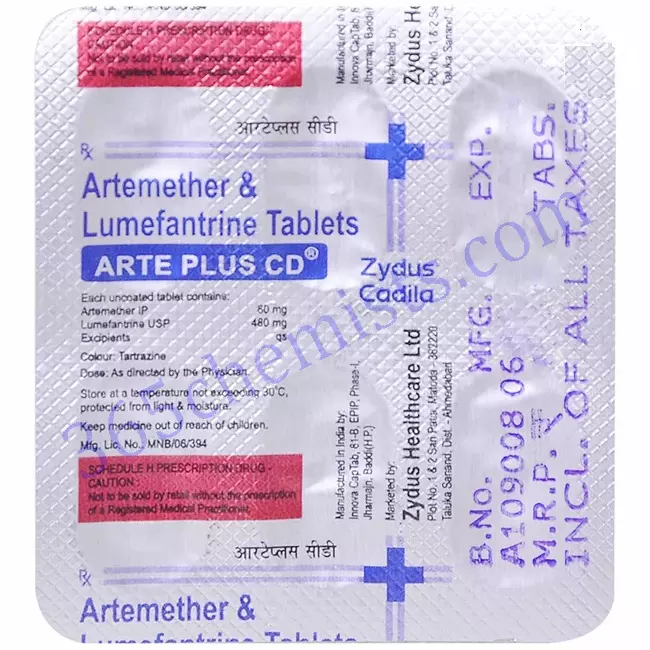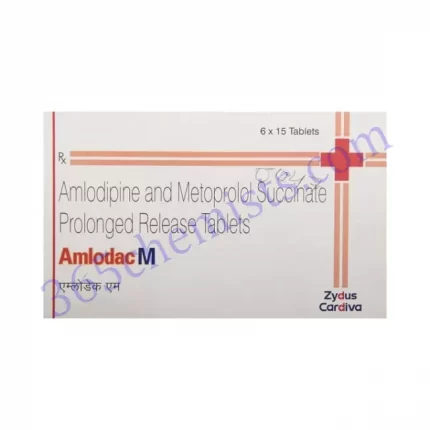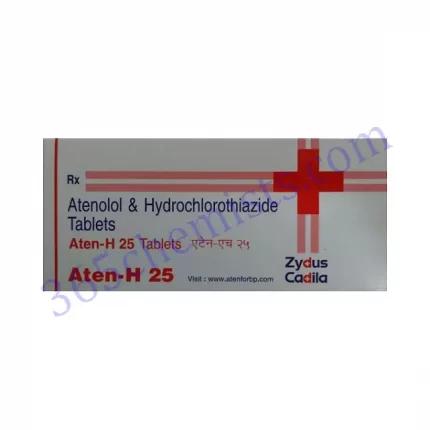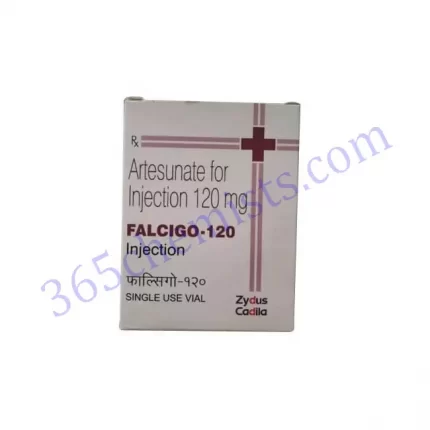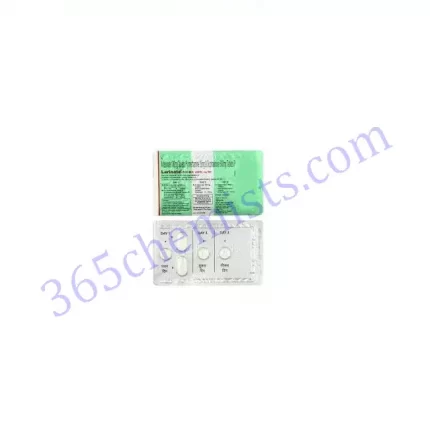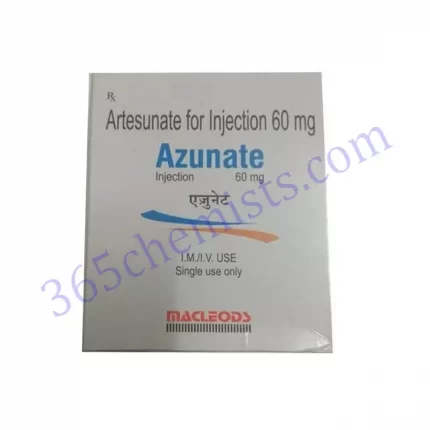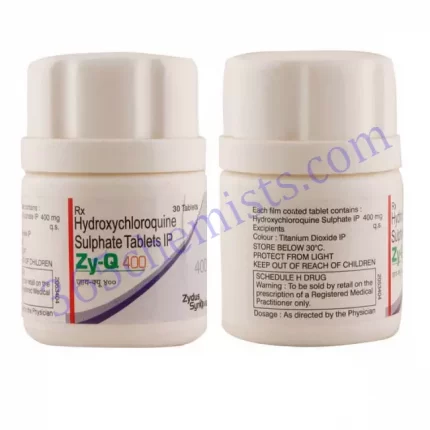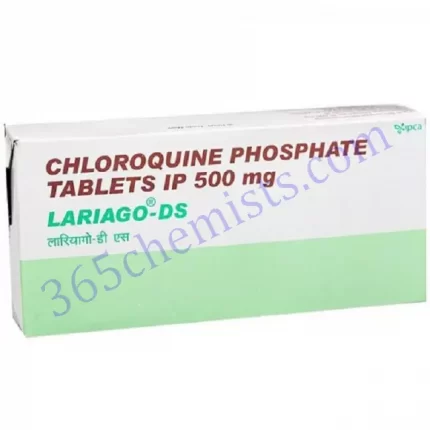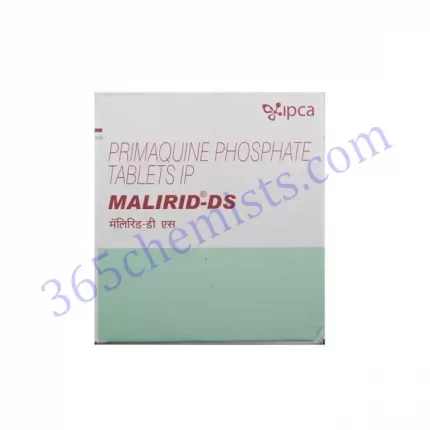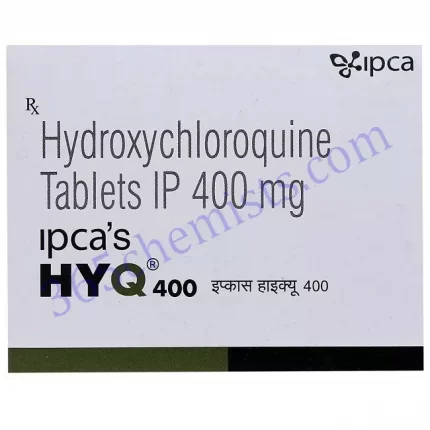Arte Plus CD Tablet: Effective Treatment for Malaria
Artemether, a drug commonly used to treat malaria, is the active component of Arte Plus CD Tablet. It is specifically formulated to attack malaria parasites in the blood stage, bringing about quick and lasting relief from the disease’s symptoms. In the global fight against malaria and to lessen its negative effects on public health, the Arte Plus CD Tablet is a crucial tool.
Understanding Malaria:
Plasmodium parasites are the source of the infectious disease malaria, which is spread by mosquitoes. It still poses a serious threat to global health, especially in areas where the illness is endemic. The female Anopheles mosquitoes that carry the malaria parasite bite humans to spread the disease. Malaria signs and symptoms consist of fever, chills, headache, muscle aches, and fatigue. It is essential to receive prompt and effective treatment to avoid complications and potential fatalities.
Artemether: Mechanism of Action and Efficacy:
The primary component of Arte Plus CD Tablets, artemether, is an antimalarial medication in the artemisinin class. By interfering with the metabolic functions of the malaria parasites, it demonstrates strong antimalarial activity. Artemether efficiently eliminates the blood-stage parasites, lowering their population and easing malaria symptoms. It is especially helpful in treating severe malaria cases due to its quick onset of action.
Dosage and Administration:
Health care professionals base the dosage of Arte Plus CD Tablet on the patient’s age, weight, and the severity of the malaria infection. To ensure the complete eradication of the parasites, it is imperative to adhere to the recommended regimen and finish the entire course of treatment. On the timing of doses and whether Arte Plus CD Tablet should be taken with food, healthcare providers may also offer advice.
Safety Profile and Side Effects:
When taken as prescribed, Arte Plus CD Tablet is typically well tolerated. However, it could have side effects, just like any medication. Gastrointestinal symptoms like nausea, vomiting, and diarrhoea may be frequent side effects. These negative effects are typically minor and short-lived. Although serious adverse reactions are uncommon, they should be reported right away to healthcare professionals.
Precautions and Contraindications:
Not everybody will be a good fit for the Arte Plus CD Tablet. People with certain allergies or medical conditions should use caution or speak with their doctor before taking the medication. Any pre-existing conditions, current medications, or allergies must be disclosed to healthcare providers in order for them to be properly assessed and advised. Before using Arte Plus CD Tablet, pregnant women and nursing mothers should also consult a doctor.
Combination Therapy and Resistance Prevention:
To increase its effectiveness and lower the risk of resistance, Arte Plus CD Tablet is frequently taken in conjunction with other antimalarial drugs. The development of malaria parasites that are resistant to medication must be stopped with combination therapy. These combinations offer a more thorough and potent course of treatment by combining various mechanisms of action.
Importance of Prevention Strategies:
Even though Arte Plus CD Tablet is a highly effective malaria treatment, prevention is still a key component of malaria control. Preventive measures can be put in place to lessen the impact of the disease and the spread of malaria. The use of bed nets treated with insecticide, indoor residual spraying, and the administration of preventive drugs in high-risk areas are important prevention strategies.
Insecticide-Treated Bed Nets:
A key component of efforts to prevent malaria is the use of insecticide-treated bed nets. By physically separating people from mosquitoes, these nets stop bites while people are sleeping. Further lowering the risk of infection is the insecticide coating on the mosquito nets, which deters or kills mosquitoes. It is essential for the prevention of malaria to encourage the use of bed nets, especially among vulnerable populations like children and pregnant women.
Indoor Residual Spraying:
Insecticides are sprayed on the interior walls of homes and other structures during indoor residual spraying in an effort to kill malaria-transmitting mosquitoes. The insecticides have a lasting effect and continue to work well months after application. In regions with high rates of malaria transmission or populations of mosquitoes that are resistant to insecticides, this intervention is especially helpful.
Preventive Medications:
In areas where malaria is a problem, certain population groups can receive preventive drugs like seasonal malaria chemoprevention (SMC) and intermittent preventive treatment in pregnancy (IPTp). These drugs are administered on a regular schedule to prevent malaria during vulnerable times, like pregnancy or the rainy season. By offering these preventive treatments, the risk of complications from malaria can be greatly decreased.
Global Malaria Control Efforts:
Governments, international organisations, researchers, and communities all participate in the global effort to control malaria. Collaboration efforts seek to improve access to diagnostic equipment and antimalarial drugs as well as the implementation of evidence-based interventions. In order to maintain progress and eliminate malaria, more money must be invested in research, advocacy, and funding.
Challenges and Future Directions:
Malaria control has made significant progress, but problems still exist. Drug resistance, insecticide resistance, and socioeconomic barriers are some of the factors that contribute to the disease’s ongoing burden. New antimalarial medications, insecticides, and prevention methods must be continuously researched and innovated. Malaria control initiatives can be strengthened further by addressing underlying socioeconomic determinants and enhancing healthcare infrastructure.
Conclusion:
A useful drug for the treatment of malaria is Arte Plus CD Tablet (Artemether). It is a crucial weapon in the fight against malaria because of its mode of action, quick onset, and effectiveness against blood-stage parasites. Individuals can successfully combat malaria and help to control and eventually eradicate it by taking preventive measures, adhering to the recommended dosage, and completing the recommended course of treatment. We can work towards a malaria-free world, ensuring better health and well-being for all, through cooperative efforts, research advancements, and community engagement.An effective drug for the treatment of malaria, Arte Plus CD Tablet (Artemether) targets the blood-stage parasites and provides quick symptom relief. But preventing malaria still has to be a top priority. We can lessen the spread of malaria and safeguard vulnerable populations by implementing preventive measures like the use of bed nets, indoor residual spraying, and preventive medications. To overcome the obstacles and reach the ultimate goal of eliminating malaria, sustained efforts, advanced research, and global collaboration are required. By working together, we can eliminate malaria’s negative effects and improve everyone’s health and well-being.

